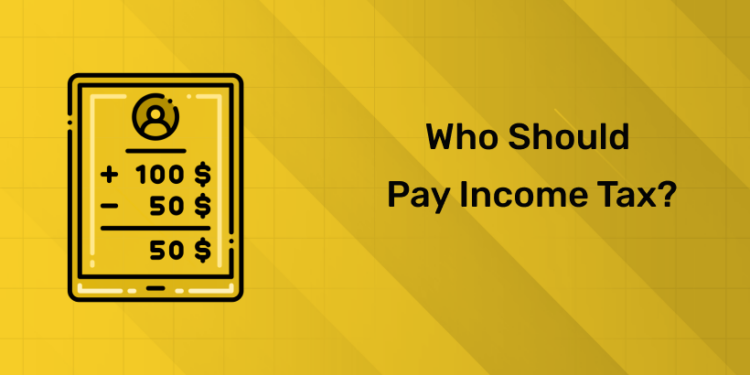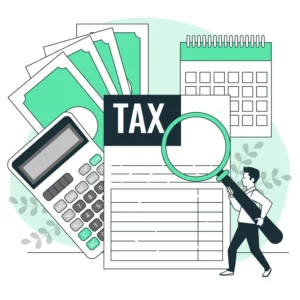Table of Contents
Income tax is the backbone of the Indian government’s revenue. That revenue funds the public services we all rely on—education, healthcare, infrastructure and welfare programs. But who should pay income tax, and how much, remains a tricky issue in India. As the economy grows, so does the gap between the rich and the poor, and the informal workforce is a major challenge for the government in designing a fair and effective tax system.
In this post, we’ll explore India’s updated income tax structure for 2025, who has to pay tax, and the key changes that could affect taxpayers. We’ll also look at the different viewpoints on how the tax burden should be distributed and whether the new system really does promote fairness and economic growth.
Practical Accounting Training for Real-World Success – Sign Up Now!
Who Should Pay Income Tax?
Income tax is a direct tax levied on income earned by individuals and entities. The tax is calculated based on earnings over a financial year (April 1st to March 31st). Understanding who should pay income tax—and how much—is crucial for all taxpayers in India. It is one of the primary ways the government collects revenue to provide public services such as healthcare, education, transportation, and welfare programs. Understanding who should pay income tax and how much to pay is important for all taxpayers in India.
In this guide, we’ll explore income tax slabs, who is required to pay, different tax regimes, and much more.
Income Tax Slabs
1: Accounting provides information on
The Indian government has overhauled the tax slabs to simplify the system and give taxpayers a break. Under the new tax regime, the slabs are:
| Income (In Rs) | Tax rate (In %) |
| 0-4,00,000 | 0 |
| 4,00,001-8,00,000 | 5 |
| 8,00,001-12,00,000 | 10 |
| 12,00,001-16,00,000 | 15 |
| 16,00,001-20,00,000 | 20 |
| 20,00,001-24,00,000 | 25 |
| 24,00,001 and above | 30 |
Placement Oriented PWC Business Accounting Course
PWC Certified Business Accounting Course by Entri App: Master in-demand skills, ace interviews, and secure top-tier jobs.
Join Now!Key Changes and Benefits
1. Higher Basic Exemption Limit:One of the key changes is a higher basic exemption limit. That means the tax burden on lower-income groups is reduced. The exemption limit has been raised from ₹3 lakh to ₹4 lakh.
2. Zero Tax Liability up to ₹12 Lakh: Taxpayers earning up to ₹12 lakh will have no tax liability thanks to an increased rebate under Section 87A. That rebate is capped at ₹60,000.
3. Standard Deduction for Salaried Individuals:Salaried taxpayers can claim a standard deduction of ₹75,000 under the new tax regime. That’s a further tax relief.
4. Marginal Relief for Incomes Slightly Above ₹12 Lakh:Taxpayers earning just over ₹12 lakh will benefit from marginal relief. That means they won’t be hit with excessive taxation on small income increases.
Who Must Pay Income Tax?
The following individuals and entities must pay income tax if their income is above the basic exemption limit:
- Salaried employees
- Self-employed individuals (freelancers, business owners)
- Companies and LLPs
- Hindu Undivided Families (HUFs)
The amount of tax payable is based on the income earned, investments made, and deductions available.
Mandatory ITR Filing Scenarios
Even if your income is below the taxable limit, you must file ITR in the following cases:
- If your gross total income is above the basic exemption limit (₹4 lakh for individuals below 60, ₹5 lakh for senior citizens).
- If you have deposited more than ₹1 crore in a current bank account in a financial year.
- If you have incurred electricity expenses above ₹1 lakh in a financial year.
- If you have foreign income or foreign assets.
- If you receive income from capital gains, property or other taxable sources.
Placement Oriented PWC Business Accounting Course
PWC Certified Business Accounting Course by Entri App: Master in-demand skills, ace interviews, and secure top-tier jobs.
Join Now!Income Tax for Senior Citizens
India provides special tax benefits for senior citizens to ease their burden:
Senior Citizens (Aged 60–79 Years)
- Basic exemption limit: ₹5 lakh.
- Additional deductions under Section 80D for medical insurance premiums and under Section 80TTB for interest income.
Super Senior Citizens (Aged 80+ Years)
- Basic exemption limit: ₹7 lakh.
- No tax liability if annual income is below ₹7 lakh.
| Our Other Courses | |
| UAE Accounting Course | GST with Practical Accounting Course |
| Tally Training | PwC Certified Taxation and Accounting Course |
| ACCA Course | Zoho Books Training |
Rebates and Exemptions
Taxpayers can reduce their taxable income through rebates and exemptions:
Common Rebates and Exemptions
- Section 80C: Deductions up to ₹1.5 lakh for investments in life insurance, provident funds, National Savings Certificates (NSC), etc.
- Section 80D: Deductions for medical insurance premiums (₹25,000 for individuals, ₹50,000 for senior citizens).
- Section 24(b): Deduction on home loan interest payments (up to ₹2 lakh).
Rebate Under Section 87A
- Individuals earning below ₹12 lakh after deductions can get rebate up to ₹60,000 and no tax liability up to ₹12 lakh.
Consequences of Not Paying Income Tax
Not paying income tax or not filing returns can lead to heavy penalties:
Penalties for Not Filing ITR
- Late filing fees: ₹5,000 fine for missing the deadline (₹1,000 if income is below ₹5 lakh).
- Interest on unpaid taxes: 1% per month under Section 234A for late tax payments.
Legal Action
- Prosecution: Willful tax evasion can lead to 3 months to 7 years imprisonment under Section 276C.
- Tax audits and investigations: Non-filing or incorrect filing of returns can trigger tax department audits and further scrutiny.
Practical Accounting Training for Real-World Success – Sign Up Now!
Conclusion
India’s income tax system in 2025 is where relief and revenue generation meet. That meeting point comes with a pretty significant announcement: no tax on incomes up to ₹12 lakh (and ₹12.75 lakh for salaried employees) under the new regime, starting April 1, 2025. That move empowers millions of middle-income earners, simplifies tax planning—and shows a real commitment to economic inclusion. Taxpayers who understand the ins and outs of tax slabs, exemptions and filing obligations can make the most of their finances. And that fuels India’s growth story. Wherever you are in your career climbing the ladder, running a business or enjoying retirement you’ll thrive financially and as a contributor to a stronger nation if you get the tax regime right.
Taxpayers should assess their income, deductions and financial goals to see if the new regime is better than the old one. Consult a tax professional to get personalized advice to save tax and be compliant.
Placement Oriented PWC Business Accounting Course
PWC Certified Business Accounting Course by Entri App: Master in-demand skills, ace interviews, and secure top-tier jobs.
Join Now!Frequently Asked Questions
What is income tax?
Income tax is a tax levied by the government on the income earned by individuals, businesses, and other entities. The tax is calculated based on the amount of money one earns in a year.
Who is required to pay income tax in India?
In India, individuals who earn above ₹2.5 lakh annually are required to pay income tax. This includes salaried individuals, self-employed professionals, and businesses. The tax rate increases with higher income levels.
What are the current income tax slabs in India?
The Indian government has overhauled the tax slabs to simplify the system and give taxpayers a break. Under the new tax regime, the slabs are:
Income up to ₹4,00,000: No tax. That’s a relief for many.
Income from ₹4,00,001 to ₹8,00,000: 5%. That’s a relatively low rate.
Income from ₹8,00,001 to ₹12,00,000: 10%. A bit higher, but still manageable.
Income from ₹12,00,001 to ₹16,00,000: 15%. This is where things start to get a bit steeper.
Income from ₹16,00,001 to ₹20,00,000: 20%. The tax rate increases, so does the tax burden.
Income from ₹20,00,001 to ₹24,00,000: 25%. You’re really starting to feel the pinch now.
Income above ₹24,00,000: 30%. That’s the highest rate.
Why should I pay income tax?
Paying income tax helps the government fund public services like healthcare, education, infrastructure, and welfare programs. It is essential for national development and ensures that everyone contributes to the functioning of society.














